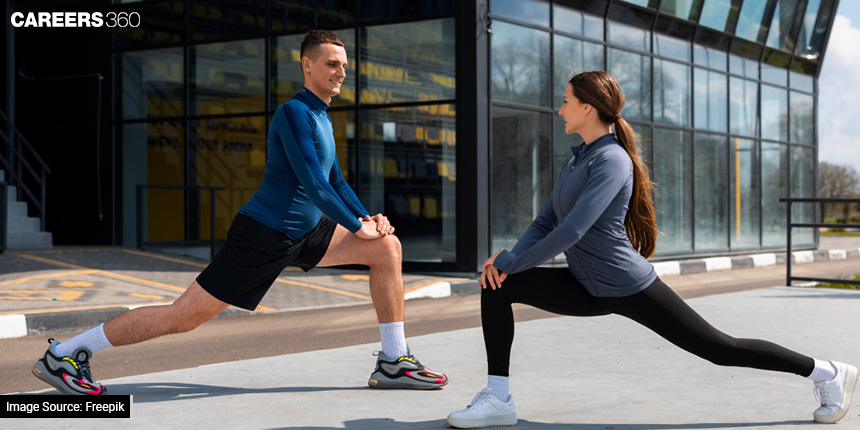Sports injuries and setbacks are an unfortunate but common part of an athlete's life. Whether you're a professional athlete or someone who enjoys sports recreationally, injuries can be emotionally and physically challenging. However, the process of recovering from sports injuries and setbacks is a journey that is as much about mental fortitude as it is about physical rehabilitation. In this comprehensive guide, we will explore the various aspects of this recovery process, offering insights into the stages, strategies, and support systems that play a crucial role in helping athletes get back on their feet.
Stages of Recovery
Assessment and Diagnosis: The first step in recovering from a
sports injury or setback is a proper assessment and diagnosis. This involves consulting with medical professionals, such as orthopedic doctors, sports medicine specialists, or physical therapists, who can identify the nature and extent of the injury. Diagnostic tools like X-rays, MRIs, and physical examinations are commonly used to assess the damage.
Acceptance and Emotional Healing: Coping with an injury can be emotionally challenging. Athletes often experience a range of emotions, including frustration, anger, and sadness. It's essential to acknowledge and accept these emotions as a natural part of the process. Seeking support from friends, family, or even a sports psychologist can be immensely beneficial in this stage.
Physical Rehabilitation: Depending on the type and severity of the injury, physical rehabilitation may be necessary. This stage involves working with physical therapists and trainers to regain strength, flexibility, and range of motion. Rehabilitation exercises are tailored to the specific injury and individual athlete, with the goal of returning to peak physical condition.
Nutrition and Hydration: Proper nutrition is a critical aspect of recovery. Athletes often require specific diets to support the healing process. Nutrients like protein, vitamins, and minerals play a crucial role in tissue repair. Staying well-hydrated is equally important, as dehydration can hinder recovery.
Rest and Sleep: Adequate rest and quality sleep are essential for recovery. The body repairs itself during sleep, so athletes should prioritize getting enough restorative rest. Sleep also aids in mental and emotional recovery, helping athletes manage stress and anxiety.
Medication and Pain Management: In some cases, medication may be prescribed to manage pain and inflammation. It's crucial to follow medical advice and take medications as directed. Over-the-counter pain relievers can also be helpful, but their use should be discussed with a healthcare provider.
Gradual Return to Activity: As an athlete's body heals, they can gradually reintroduce physical activity. This stage requires caution and guidance from medical professionals. Rushing back into sports too soon can lead to re-injury.
Strategies for Recovery
Set Realistic Goals: Setting achievable short-term and long-term goals is crucial for maintaining motivation throughout the recovery process. These goals should be tailored to the individual athlete's progress and capabilities.
Follow Medical Advice: It's essential to follow the recommendations of healthcare professionals. Ignoring medical advice or pushing too hard too soon can lead to setbacks.
Cross-Training: Cross-training involves engaging in alternative activities that do not exacerbate the injury while maintaining fitness levels. For example, a runner with a leg injury might try swimming to maintain cardiovascular fitness.
Mind-Body Techniques: Techniques such as meditation, deep breathing, and visualization can help athletes manage pain, reduce stress, and stay mentally focused during recovery.
Stay Positive and Patient: Maintaining a positive attitude and patience are key to a successful recovery. Progress may be slow at times, but staying optimistic can help athletes overcome challenges.
Seek Professional Help: In addition to medical professionals, consider working with a sports psychologist or counselor to address any mental and emotional challenges during recovery.
Prevent Future Injuries: Use the recovery period as an opportunity to assess and address factors that may have contributed to the injury. This might include adjusting training techniques, improving equipment, or working on muscle imbalances.
Support Systems
Medical Team: Building a trusted medical team, including doctors, physical therapists, and specialists, is crucial. These professionals provide guidance, monitor progress, and make necessary adjustments to the recovery plan.
Family and Friends: Emotional support from loved ones can make a significant difference in an athlete's recovery. Friends and family can provide encouragement, help with daily tasks, and offer a listening ear during tough times.
Coaches and Trainers: Coaches and trainers play a vital role in an athlete's recovery. They can modify training plans, offer guidance on technique, and provide motivation.
Teammates and Peers: Athletes often find camaraderie and motivation from their teammates and peers. Sharing experiences and challenges with others who understand the journey can be uplifting.
Support Groups: Some athletes may benefit from joining support groups or online communities dedicated to
sports injury recovery. These groups offer a platform to share experiences, advice, and encouragement.
Challenges and Setbacks
Recovering from sports injuries and setbacks is rarely a linear process. Athletes may encounter challenges and setbacks along the way. Common challenges include:
Plateaus: Progress may stall at times, leading to frustration. It's essential to stay patient and work with healthcare professionals to adjust the recovery plan if necessary.
Re-Injury: Returning to sports too soon or with inadequate preparation can lead to re-injury. This setback can be demoralizing but is preventable with caution.
Mental Blocks: Fear of re-injury or performance anxiety can create mental blocks that hinder progress. Addressing these issues with a sports psychologist can be helpful.
Impatience: Athletes often want to rush the recovery process, which can lead to overexertion and further injury. Managing expectations and maintaining a steady pace is crucial.
Success Stories
Throughout the recovery process, many athletes have faced and overcome significant setbacks to achieve remarkable success. These success stories serve as inspiration and remind us that with determination and the right support, athletes can bounce back stronger than ever.
Adrian Peterson: NFL running back Adrian Peterson tore his ACL and MCL in 2011. He not only recovered quickly but also had one of the best seasons of his career the following year.
Bethany Hamilton: Professional surfer Bethany Hamilton lost her left arm in a shark attack at the age of 13. She returned to competitive surfing and has since become an inspiration to athletes worldwide.
Derrick Rose: NBA player Derrick Rose suffered multiple knee injuries throughout his career. Despite setbacks, he continued to work hard and adapt his playing style, earning the NBA MVP title in 2011.
Lindsey Vonn: World-renowned skier Lindsey Vonn faced numerous injuries during her career, including multiple knee surgeries. She persevered and became one of the most decorated alpine skiers in history.
Tom Brady: NFL quarterback Tom Brady tore his ACL and MCL in 2008 but returned to lead the New England Patriots to multiple Super Bowl victories in the years that followed.
Recovering from sports injuries and setbacks is a challenging journey that demands physical resilience, mental strength, and a robust support system. The process involves stages of assessment, acceptance, physical rehabilitation, and gradual return to activity. Athletes must employ various strategies, such as goal-setting, cross-training, and mind-body techniques, to facilitate recovery. Support systems, including medical professionals, family, friends, coaches, and teammates, play a crucial role in an athlete's successful recovery.
While setbacks and challenges are common, stories of athletes who have triumphed over adversity serve as a testament to the human spirit's resilience. With the right mindset, determination, and the support of those around them, athletes can not only recover but often return to their sports stronger and more motivated than ever before. The journey of recovering from sports injuries and setbacks is a testament to the indomitable spirit of athletes who refuse to let adversity define their athletic careers.

















